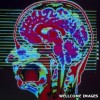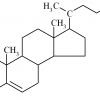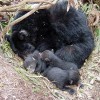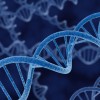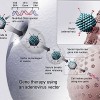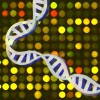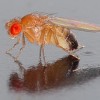Genes Don’t Exist to Cause Disease
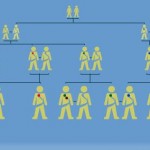 It is not uncommon during labs on mutations, to discuss that mutations can cause genetic disease. Students will use the phrase “the gene for breast cancer” or “the gene for hemophilia” when these discussions take place. What many think, is that individuals with breast cancer or other genetic diseases have a gene that others do not. In reality, they have a gene that everyone has, but the gene has a mutation that affects its function. Genes don’t exist to cause disease. This is a recurrent theme for me!
It is not uncommon during labs on mutations, to discuss that mutations can cause genetic disease. Students will use the phrase “the gene for breast cancer” or “the gene for hemophilia” when these discussions take place. What many think, is that individuals with breast cancer or other genetic diseases have a gene that others do not. In reality, they have a gene that everyone has, but the gene has a mutation that affects its function. Genes don’t exist to cause disease. This is a recurrent theme for me!
For example, when someone has hemophilia (a blood clotting disorder), there is a mutation in a gene that normally tells our cells how to make proteins called clotting factors. The mutation prevents a specific clotting factor from being produced, and as a result, the individual carrying the mutation has the disease and the blood doesn’t clot as it should after an injury. It’s a gene we all have, but if someone has hemophilia, the gene just isn’t working properly.
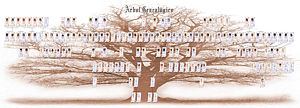
Another common misunderstanding is that if a disease is genetic, it is always inherited. It is true that many disease-causing mutations are inherited. Sometimes though, the mutations that cause genetic diseases develop over time, after we are born. Many of the mutations associated with the development of cancer, accumulate in our cells as we age, and aren’t inherited. These diseases are genetic, because they are caused by mutations in genes, but they aren’t passed from parent to offspring. Less than 10% of all cancers are inherited!
It’s no wonder that not only children, but adults too, are misinformed. These types of incorrect phrases and misinterpretations are printed all the time in magazine and newspapers. So where do you go for correct information? To learn more about the genetics of cancer, go to: www.insidecancer.org. To learn more about basic laws of inheritance, use DNA From the Beginning (www.dnaftb.org). To learn more about the inheritance of mutations that cause disease, go to: http://www.ncbi.nlm.nih.gov/bookshelf/br.fcgi?book=gnd, the Online Mendelian Inheritance in Men (OMIM) database.
| Print article | This entry was posted by Amanda McBrien on February 17, 2010 at 5:47 pm, and is filed under DNA From The Beginning. Follow any responses to this post through RSS 2.0. You can skip to the end and leave a response. Pinging is currently not allowed. |

